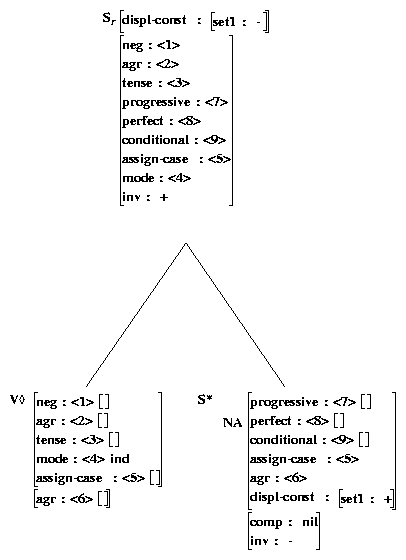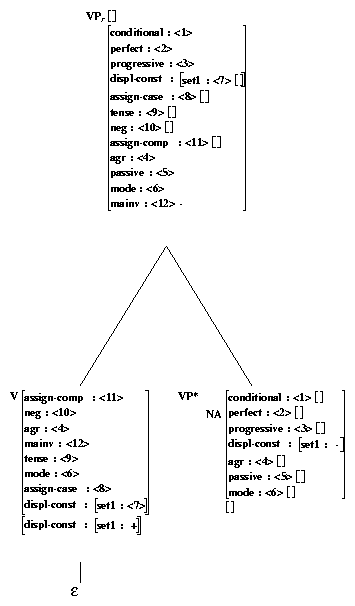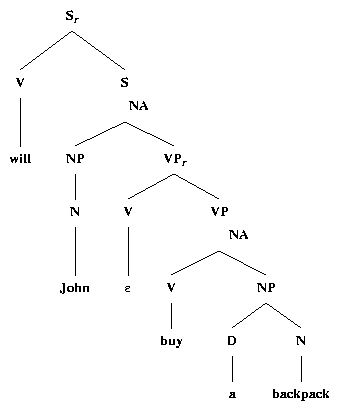

 |
0.5in |  |
| (a) | (b) |
 |
The feature <displ-const> ensures that both of the trees in Figure 21.4 must adjoin to an elementary tree whenever one of them does. For more discussion on this mechanism, which simulates tree local multi-component adjunction, see [#!hockeysrini93!#]. The tree in Figure 21.4(b), anchored by , represents the originating position of the inverted auxiliary. Its adjunction blocks the <assign-case> values of the VP it dominates from being co-indexed with the <case> value of the subject. Since <assign-case> values from the VP are blocked, the <case> value of the subject can only be co-indexed with the <assign-case> value of the inverted auxiliary (Figure 21.4(a)). Consequently, the inverted auxiliary functions as the case-assigner for the subject in these inverted structures. This is in contrast to the situation in uninverted structures where the anchor of the highest (leftmost) VP assigns case to the subject (see section 4.4.3 for more on case assignment). The XTAG analysis is similar to GB accounts where the inverted auxiliary plus the -anchored tree are taken as representing I to C movement.